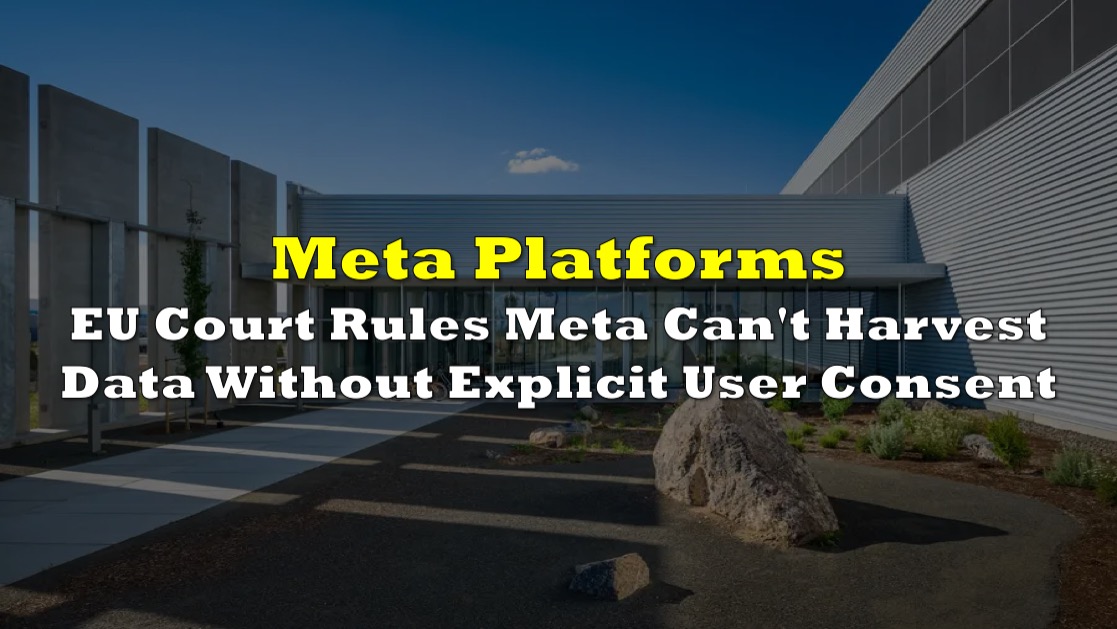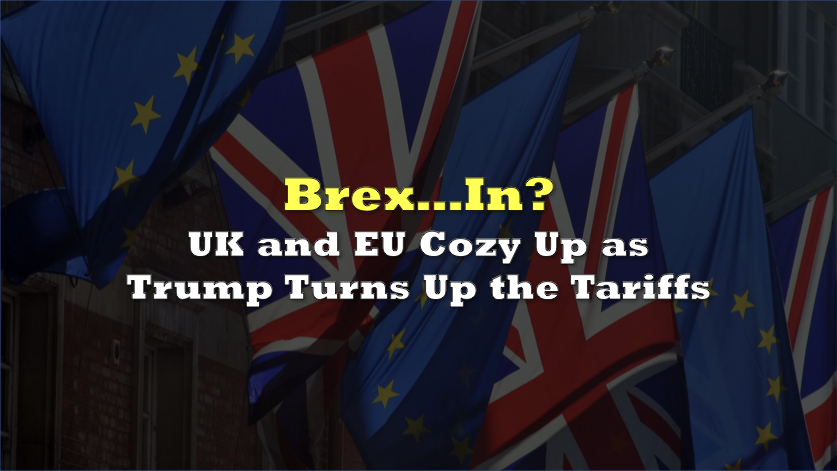Meta Platforms (NASDAQ: META) faces a setback as the European Union’s highest court upheld the ruling by German antitrust regulators that the company had engaged in data harvesting and abused its dominance in the social media realm. This ruling paves the way for Germany’s leading antitrust enforcer, the Bundeskartellamt, to restrict Meta from combining user data collected across its various platforms, including Facebook, Instagram, and WhatsApp, as well as from external websites and apps, without explicit user consent.
The EU's highest court upheld a decision by German regulators that Meta had abused its dominance by harvesting information about users. The ruling clears the way for Germany's antitrust enforcer to block Meta from combining user data across its platforms. https://t.co/awSmnEuwL2
— The New York Times (@nytimes) July 4, 2023
The court’s decision deals a blow to Meta’s business model, which heavily relies on leveraging the extensive user data it accumulates from its services and online browsing habits to deliver targeted advertisements. Furthermore, this ruling bolsters the case for stricter regulations on the world’s largest tech companies, with potential implications for other European Union antitrust authorities.
The forthcoming Digital Markets Act, an E.U. antitrust law set to take effect in the near future, will grant regulators enhanced powers to foster competition within the technology sector. Notably, the court ruling permits E.U. authorities to scrutinize data collection practices that may undermine competition — an innovative approach to antitrust enforcement.
Moreover, the court’s decision empowers regulators to assess whether a company’s data collection practices infringe upon the European Union’s data protection law, the General Data Protection Regulation (GDPR). Back in 2019, German regulators employed a groundbreaking interpretation of antitrust law, ruling that Meta’s data gathering practices violated both competition rules and the GDPR. They insisted that Meta obtain explicit user consent and refrain from amassing limitless amounts of data merely by virtue of user registration.
Andreas Mundt, Germany’s prominent antitrust regulator, has long advocated for tougher measures against Facebook and other tech giants. He contends that Facebook exploits the data it gathers from users to reinforce its dominance, thus impeding fair competition.
Meta, in response to the ruling, stated that it is currently “evaluating the Court’s decision and will have more to say in due course.” The company will need to implement changes in Germany to comply with the ruling, likely including a revised menu that offers users greater control over their data collection preferences.
The implications of this decision extend beyond Meta and may impact other digital platforms that extensively collect user data for targeted advertising, such as Amazon, Google, and TikTok.
Ursula Pachl, Deputy Director General of the European Consumer Organization, a consumer rights group, expressed optimism about the ruling, stating “this judgment paves the way for more effective enforcement against dominant digital platforms.”
Information for this briefing was found via The New York Times. The author has no securities or affiliations related to this organization. Not a recommendation to buy or sell. Always do additional research and consult a professional before purchasing a security. The author holds no licenses.









